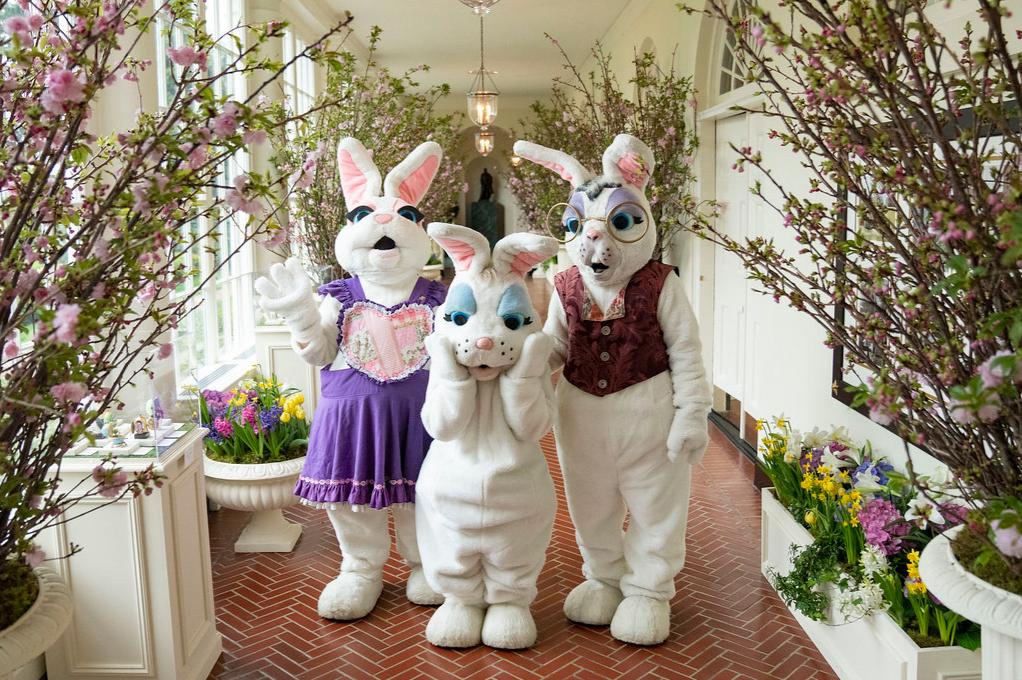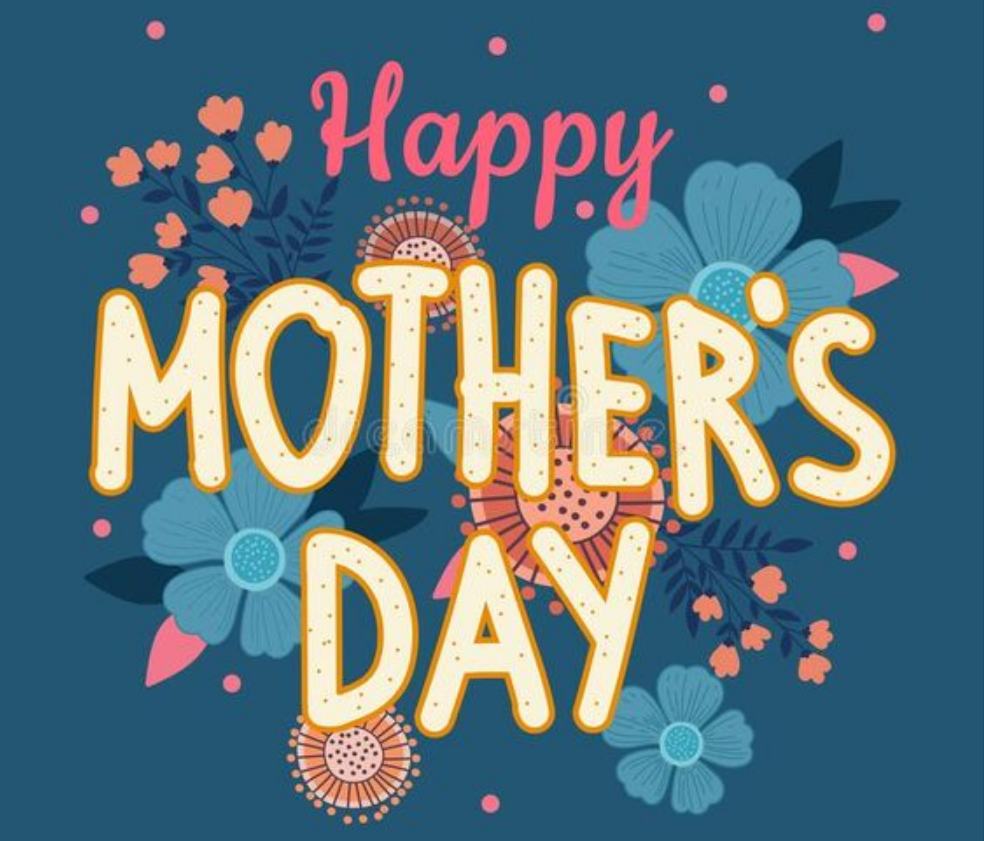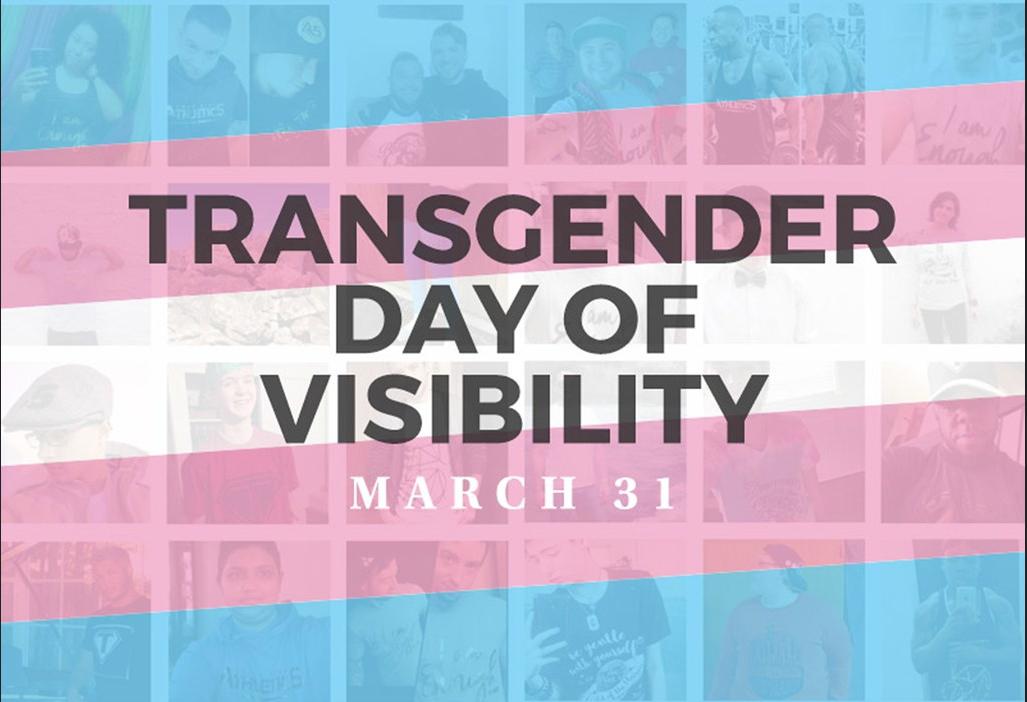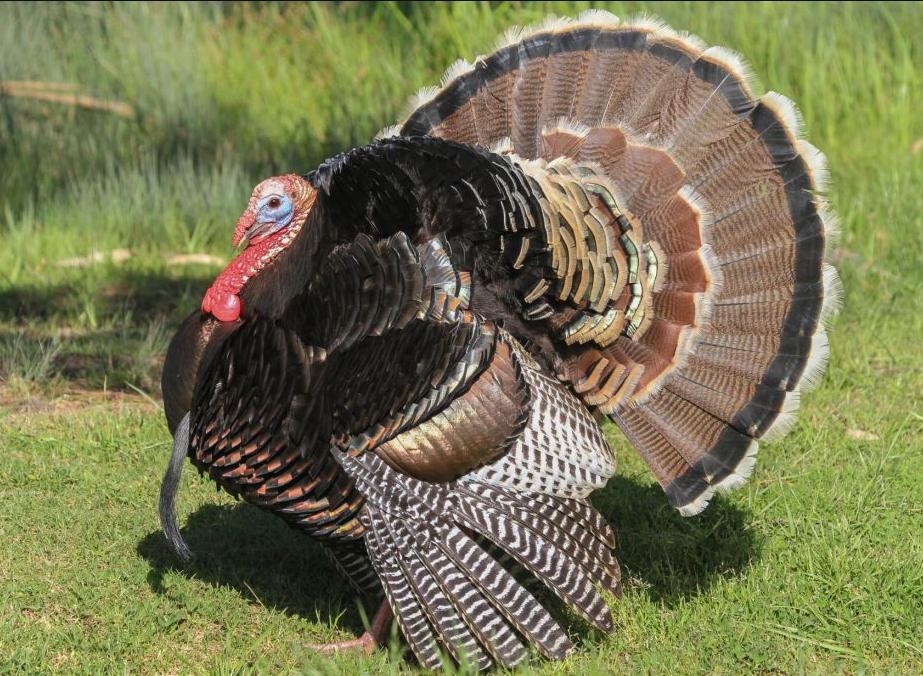Special
The Los Angeles Blade wishes you a happy Easter
The publisher, editor, staff and contributors of the Los Angeles Blade wishes you a very happy and safe Easter 2023

The publisher, editor, staff and contributors of the Los Angeles Blade wishes you and yours a very happy Easter 2023.
The Ancient Origins of the Easter Bunny
A scholar traces the folk figure’s history from the Neolithic era to today
By Tok Thompson | LOS ANGELES, Calif. – (The Conversation) The Easter bunny is a much-celebrated character in American Easter celebrations. On Easter Sunday, children look for hidden special treats, often chocolate Easter eggs, that the Easter bunny might have left behind.
As a folklorist, I’m aware of the origins of the long and interesting journey this mythical figure has taken from European prehistory to today.
Religious role of the hare
Easter is a celebration of spring and new life. Eggs and flowers are rather obvious symbols of female fertility, but in European traditions, the bunny, with its amazing reproductive potential, is not far behind.
In European traditions, the Easter bunny is known as the Easter hare. The symbolism of the hare has had many tantalizing ritual and religious roles down through the years.
Hares were given ritual burials alongside humans during the Neolithic age in Europe. Archaeologists have interpreted this as a religious ritual, with hares representing rebirth.
Over a thousand years later, during the Iron Age, ritual burials for hares were common, and in 51 B.C.E., Julius Caesar mentioned that in Britain, hares were not eaten due to their religious significance.
/https://tf-cmsv2-smithsonianmag-media.s3.amazonaws.com/filer_public/8b/d6/8bd6674a-388f-499a-9f8d-07c3f70ce3d8/1505_piero_di_cosimo_venus_mars_and_cupid_anagoria.jpeg)
Caesar would likely have known that in the classical Greek tradition, hares were sacred to Aphrodite, the goddess of love. Meanwhile, Aphrodite’s son Eros was often depicted carrying a hare as a symbol of unquenchable desire.
From the Greek world through the Renaissance, hares often appear as symbols of sexuality in literature and art. For example, the Virgin Mary is often shown with a white hare or rabbit, symbolizing that she overcame sexual temptation.
Hare meat and witches’ mischief
But it is in the folk traditions of England and Germany that the figure of the hare is specifically connected to Easter. Accounts from the 1600s in Germany describe children hunting for Easter eggs hidden by the Easter hare, much as in the United States today.
Written accounts from England around the same time also mention the Easter hare, particularly in terms of traditional Easter hare hunts and the eating of hare meat at Easter.
One tradition, known as the “Hare Pie Scramble,” was held at Hallaton, a village in Leicestershire, England. It involved eating a pie made with hare meat and people “scrambling” for a slice. In 1790, the local parson tried to stop the custom due to its pagan associations, but he was unsuccessful, and the custom continues in that village until this day.
/https://tf-cmsv2-smithsonianmag-media.s3.amazonaws.com/filer_public/f8/3e/f83e41cd-af6d-4cf5-84cd-699e28064a48/1280px-albrecht_durer_-_hare_1502_-_google_art_project.jpeg)
The eating of the hare may have been associated with various longstanding folk traditions of scaring away witches at Easter. Throughout northern Europe, folk traditions record a strong belief that witches would often take the form of a hare, usually for causing mischief such as stealing milk from neighbors’ cows. Witches in medieval Europe were said to be able to suck out the life energy of others, making them ill.
The idea that the witches of winter should be banished at Easter is a common European folk motif appearing in several festivities and rituals. The spring equinox, with its promise of new life, was held symbolically in opposition to the life-draining activities of witches and winter.
This idea provides the underlying rationale behind various festivities and rituals, such as the Osterfeuer, or Easter Fire, a celebration in Germany involving large outdoor bonfires meant to scare away witches. In Sweden, popular folklore states that at Easter, the witches all fly away on their broomsticks to feast and dance with the devil on the legendary island of Blåkulla, in the Baltic Sea.
Pagan origins
In 1835, the folklorist Jacob Grimm, one of the famous team of the fairy tale Brothers Grimm, argued that the Easter hare was connected to a goddess he imagined would have been called “Ostara” in ancient German. He derived this name from the Anglo-Saxon goddess Eostre, who Bede, an early medieval monk considered to be the father of English history, mentioned in 731 C.E.
Bede noted that in eighth-century England, the month of April was called Eosturmonath, or Eostre Month, after the goddess Eostre. He wrote that a pagan festival of spring in the name of the goddess had become assimilated into the Christian celebration of the resurrection of Christ.
While most European languages refer to the Christian holiday with names that come from the Jewish holiday of Passover, such as Pâques in French or Påsk in Swedish, German and English languages retain this older, non-biblical word: Easter.
/https://tf-cmsv2-smithsonianmag-media.s3.amazonaws.com/filer_public/4a/d9/4ad97ac2-6135-416b-a6f6-7f4db2bad7e4/tizian-madonna_mit_dem_kaninchen.jpeg)
Recent archaeological research appears to confirm the worship of Eostre in parts of England and Germany, with the hare as her main symbol. The Easter bunny therefore seems to recall these pre-Christian celebrations of spring, heralded by the vernal equinox and personified by the goddess Eostre.
After a long, cold, northern winter, it seems natural enough for people to celebrate themes of resurrection and rebirth. The flowers are blooming, birds are laying eggs and baby bunnies are hopping about.
As new life emerges in spring, the Easter bunny hops back once again, providing a longstanding cultural symbol to remind us of the cycles and stages of our own lives.
Tok Thompson is an anthropologist at the University of Southern California. From 2013 to 2017, he was the editor for Western Folklore. Recent books include The Truth of Myth, a textbook for World Mythology (with Gregory Schrempp) and a casebook entitled Posthuman Folklore.
This article is republished from The Conversation under a Creative Commons license. Read the original article.

The Los Angeles Blade is seeking a full-time local News Editor who will write, edit and manage daily content for both its digital platforms and biweekly print edition. The position also involves producing anti-hate, Latinx-focused LGBTQ content for the CALÓ News website. Ideal candidates should have at least three years of bilingual reporting experience and deep knowledge of local LGBTQ communities. You must be mission driven and deeply engaged in all aspects of the LGBTQ community, its leadership and institutions and culture.
It’s a prominent seat that gives you a leading role in America’s largest and most dynamic LGBTQ community.
REPORTS TO: Reports generally to Troy Masters, publisher for the Los Angeles Blade and to CALÓ News’ General Manager involving development of CALÓ News’ anti-hate, Latinx-focused LGBTQ content directives.
COMPENSATION: TBD.
DUTIES: The news editor will keep the LA Blade and CALÓ News websites updated with an average of three to five posts per day. These can be short, original stories written by the news editor, longer features, freelance stories, or posts from LA Blade’s sister outlet in D.C. Additionally, the editor will produce content for CALÓ News, including repurposing relevant content from LA Blade to the CALÓ News website. In addition to updating both website and social media sites, the news editor is responsible for original reporting on WeHo, LA, and California news focusing on anti-hate, Latinx LGBTQ content, among other areas, and will manage and recruit freelance writers. The news editor will coordinate with editors in D.C. and cross-post national and international stories from the Washington Blade as well as the CALÓ News editor and reporters. Every two weeks, the news editor will work with our D.C. team to produce the print edition. The News Editor will at times represent the LA Blade and CALÓ News at community events. The editorial focus of this position is strictly WeHo, Greater Los Angeles, California and Latinx LGBTQ issues. The editor will attend weekly online editorial meetings.
– Daily content requirements: Los Angeles Blade and CALÓ News will agree upon an average daily number of original local articles along with additional content posts (listings, news aggregation, opinion, etc.).
– Content may include news, features, opinions, local event reports, listings, news roundups, interviews, multimedia, user-generated content, newsletters, live event coverage, and data journalism.
– Hiree will post all content on Los Angeles Blade’s WordPress and anti-hate, Latinx-focused LGBTQ content on CALÓ News’ Blox system, ensuring cross-platform visibility.
– Hiree will work to elevate social media platforms.
HOURS: general availability Monday-Friday and must be willing to keep a busy social calender with occasional weekend work.
QUALIFICATIONS: Ideal candidate will have three years of Spanish and English experience reporting and/or editing for a news outlet; a journalism or similar bachelor’s degree; be deadline-oriented and a resident of Los Angeles with deep knowledge of local LGBTQ neighborhoods. Must also possess familiarity and skill within statewide and local LGBTQ politics, cultural and social organizations and related history.
TO APPLY: Send resume and links to three published clips to Troy Masters at [email protected], [email protected], and Kevin Naff at [email protected].
Special
The Los Angeles Blade wishes our readers a Happy Father’s Day
“I’ve said it before- it’s absolutely true: My mother gave me my drive, but my father gave me my dreams. Thanks to him, I could see a future”

LOS ANGELES, Calif. – The publisher, editor, staff and contributors of the Blade wish all of our readership a Happy Father’s Day, especially all dads, papas and granddads.
“I’ve said it before, but it’s absolutely true: My mother gave me my drive, but my father gave me my dreams. Thanks to him, I could see a future.” – Liza Minnelli
“Any man can be a father, but it takes someone special to be a dad.” – Anne Geddes
“It is a wise father that knows his own child.” – William Shakespeare
“A father’s smile has been known to light up a child’s entire day.” – Susan Gale
“Dads are most ordinary men turned by love into heroes, adventurers, storytellers, and singers of song.” – Pam Brown
“My father taught me to work, but not to love it. I never did like to work, and I don’t deny it. I’d rather read, tell stories, crack jokes, talk, laugh—anything but work.” – Abraham Lincoln
“A father is someone who carries pictures in his wallet where his money used to be.” – Suzanne Heintz
“My father gave me the greatest gift anyone could give another person: He believed in me.” – Jim Valvano
Special
Happy Pride 2024!
Being LGBTQ+ is an immutable characteristic of our very humanity, our selves- not a choice & should be embraced & celebrated

LOS ANGELES – The publisher, editor, staff, and contributors of the Los Angeles Blade wish all of you and your families a safe and happy Pride season this year.
This year more so than ever before with the entire LGBTQ+ community under attack from those who would take away out rights and even attempt to erase us, we need to rededicate ourselves to vigilance, awareness, and in the spirit of those first Pride parades and gatherings over fifty years ago, make our voices heard collectively to the world around us, and especially this year, at the ballot box.
Being LGBTQ+ is an immutable characteristic of our very humanity, our selves, and not a choice. Our queerness is our uniqueness and is to be embraced and celebrated not only this month but year round.
Special
Happy Mother’s Day
The publisher, editor, staff and contributors of the Los Angeles Blade wish our readership a very Happy Mother’s Day

LOS ANGELES, Calif. – The publisher, editor, staff and contributors of the Los Angeles Blade wish our readership a very Happy Mother’s Day.
Our love to all of the ‘Moms’ who made a difference in all of our collective lives and a big thank you to all the mothers and mother figures out there who provide us love, inspiration and support.
Special
The Los Angeles Blade wishes you a happy Easter
The publisher, editor, staff and contributors of the Los Angeles Blade wishes you a very happy and safe Easter 2024

The publisher, editor, staff and contributors of the Los Angeles Blade wishes you and yours a very happy Easter 2024.
The Ancient Origins of the Easter Bunny
A scholar traces the folk figure’s history from the Neolithic era to today
By Tok Thompson | LOS ANGELES, Calif. – (The Conversation) The Easter bunny is a much-celebrated character in American Easter celebrations. On Easter Sunday, children look for hidden special treats, often chocolate Easter eggs, that the Easter bunny might have left behind.
As a folklorist, I’m aware of the origins of the long and interesting journey this mythical figure has taken from European prehistory to today.
Religious role of the hare
Easter is a celebration of spring and new life. Eggs and flowers are rather obvious symbols of female fertility, but in European traditions, the bunny, with its amazing reproductive potential, is not far behind.
In European traditions, the Easter bunny is known as the Easter hare. The symbolism of the hare has had many tantalizing ritual and religious roles down through the years.
Hares were given ritual burials alongside humans during the Neolithic age in Europe. Archaeologists have interpreted this as a religious ritual, with hares representing rebirth.
Over a thousand years later, during the Iron Age, ritual burials for hares were common, and in 51 B.C.E., Julius Caesar mentioned that in Britain, hares were not eaten due to their religious significance.
/https://tf-cmsv2-smithsonianmag-media.s3.amazonaws.com/filer_public/8b/d6/8bd6674a-388f-499a-9f8d-07c3f70ce3d8/1505_piero_di_cosimo_venus_mars_and_cupid_anagoria.jpeg)
Caesar would likely have known that in the classical Greek tradition, hares were sacred to Aphrodite, the goddess of love. Meanwhile, Aphrodite’s son Eros was often depicted carrying a hare as a symbol of unquenchable desire.
From the Greek world through the Renaissance, hares often appear as symbols of sexuality in literature and art. For example, the Virgin Mary is often shown with a white hare or rabbit, symbolizing that she overcame sexual temptation.
Hare meat and witches’ mischief
But it is in the folk traditions of England and Germany that the figure of the hare is specifically connected to Easter. Accounts from the 1600s in Germany describe children hunting for Easter eggs hidden by the Easter hare, much as in the United States today.
Written accounts from England around the same time also mention the Easter hare, particularly in terms of traditional Easter hare hunts and the eating of hare meat at Easter.
One tradition, known as the “Hare Pie Scramble,” was held at Hallaton, a village in Leicestershire, England. It involved eating a pie made with hare meat and people “scrambling” for a slice. In 1790, the local parson tried to stop the custom due to its pagan associations, but he was unsuccessful, and the custom continues in that village until this day.
/https://tf-cmsv2-smithsonianmag-media.s3.amazonaws.com/filer_public/f8/3e/f83e41cd-af6d-4cf5-84cd-699e28064a48/1280px-albrecht_durer_-_hare_1502_-_google_art_project.jpeg)
The eating of the hare may have been associated with various longstanding folk traditions of scaring away witches at Easter. Throughout northern Europe, folk traditions record a strong belief that witches would often take the form of a hare, usually for causing mischief such as stealing milk from neighbors’ cows. Witches in medieval Europe were said to be able to suck out the life energy of others, making them ill.
The idea that the witches of winter should be banished at Easter is a common European folk motif appearing in several festivities and rituals. The spring equinox, with its promise of new life, was held symbolically in opposition to the life-draining activities of witches and winter.
This idea provides the underlying rationale behind various festivities and rituals, such as the Osterfeuer, or Easter Fire, a celebration in Germany involving large outdoor bonfires meant to scare away witches. In Sweden, popular folklore states that at Easter, the witches all fly away on their broomsticks to feast and dance with the devil on the legendary island of Blåkulla, in the Baltic Sea.
Pagan origins
In 1835, the folklorist Jacob Grimm, one of the famous team of the fairy tale Brothers Grimm, argued that the Easter hare was connected to a goddess he imagined would have been called “Ostara” in ancient German. He derived this name from the Anglo-Saxon goddess Eostre, who Bede, an early medieval monk considered to be the father of English history, mentioned in 731 C.E.
Bede noted that in eighth-century England, the month of April was called Eosturmonath, or Eostre Month, after the goddess Eostre. He wrote that a pagan festival of spring in the name of the goddess had become assimilated into the Christian celebration of the resurrection of Christ.
While most European languages refer to the Christian holiday with names that come from the Jewish holiday of Passover, such as Pâques in French or Påsk in Swedish, German and English languages retain this older, non-biblical word: Easter.
/https://tf-cmsv2-smithsonianmag-media.s3.amazonaws.com/filer_public/4a/d9/4ad97ac2-6135-416b-a6f6-7f4db2bad7e4/tizian-madonna_mit_dem_kaninchen.jpeg)
Recent archaeological research appears to confirm the worship of Eostre in parts of England and Germany, with the hare as her main symbol. The Easter bunny therefore seems to recall these pre-Christian celebrations of spring, heralded by the vernal equinox and personified by the goddess Eostre.
After a long, cold, northern winter, it seems natural enough for people to celebrate themes of resurrection and rebirth. The flowers are blooming, birds are laying eggs and baby bunnies are hopping about.
As new life emerges in spring, the Easter bunny hops back once again, providing a longstanding cultural symbol to remind us of the cycles and stages of our own lives.
Tok Thompson is an anthropologist at the University of Southern California. From 2013 to 2017, he was the editor for Western Folklore. Recent books include The Truth of Myth, a textbook for World Mythology (with Gregory Schrempp) and a casebook entitled Posthuman Folklore.
This article is republished from The Conversation under a Creative Commons license. Read the original article.
Special
The Los Angeles Blade celebrates Transgender Day of Visibility
International TDOV was created in 2010 by trans advocate Rachel Crandall. Crandall, was the head of Transgender Michigan

LOS ANGELES – Today we mark the observance of International Transgender Day of Visibility, a day that each year on March 31 set aside celebrate the lives and contributions of trans people, while also drawing attention to the poverty, discrimination, and violence the community faces.
GLAAD notes that International TDOV was created in 2010 by trans advocate Rachel Crandall. Crandall, the head of Transgender Michigan, created TDOV in response to the overwhelming majority of media stories about transgender people being focused on violence. She hoped to create a day where people could celebrate the lives of transgender people, while still acknowledging that due to discrimination, not every trans person can or wants to be visible.
Given that a minority of Americans say they personally know someone who’s transgender, the vast majority of the public learns about trans people from the media. This is a problem because, as shown in the Netflix documentary Disclosure, the media has misrepresented, mischaracterized, and stereotyped trans people since the invention of film. These false depictions have indisputably shaped the cultural understanding of who trans people are and have modeled, often for the worse, how the average cisgender person should react to and treat trans people in their own lives.
Evident in 2024 is intensifying backlash toward trans people, be it through legislative measures which, according to the American Civil Liberties Union, includes 479 anti-LGBTQ bills introduced across state legislatures this year alone, to direct physical violence, declared an epidemic by the American Medical Association since 2019, which disproportionately affects Black trans women with a majority being young people of color.
This year, Nex Benedict, a 16-year-old Indigenous and 2STGNC+ (Two Spirit, transgender and gender nonconforming+) sophomore, was killed in Oklahoma, underscoring the severe and significant impact of bullying and discrimination.
That’s why it’s still necessary for trans people to be seen through authentic, diverse, and accurate stories which reflect the actual lived experiences of trans people; both for themselves and for the people who believe they’ve never met a trans person.
This includes in news media, where too often trans people’s voices are missing from coverage of anti-trans laws and policies affecting their lives. This is true even at The New York Times where Media Matters recorded that the paper excluded the perspectives of trans people from two-thirds (60%) of its stories about anti-trans legislation in the year following public criticism for its handling of the topic.
Without trans people, including experts who are trans weighing in, and without trans representation in newsrooms to help guide coverage, anti-trans discrimination is often misrepresented in the news as a “culture clash” and “just asking questions” rather than as willful misinformation and targeted hate.
While backlash is a reality that trans people and allies are experiencing, new GLAAD polling data indicates that the vast majority of voting groups oppose candidates who campaign against transgender people’s access to healthcare and youth sports participation, and acceptance continues to rise with personal familiarity and exposure to trans stories in media.
California Governor Gavin Newsom posted a message of support on X (formerly Twitter):
Today, on Trans Day of Visibility, we celebrate California’s trans individuals and recognize their struggle for recognition and survival in the face of unconscionable hate. Everyone deserves to be respected, connected, and protected. Our trans community deserves no less.
Today, on Trans Day of Visibility, we celebrate California's trans individuals and recognize their struggle for recognition and survival in the face of unconscionable hate.
— California Governor (@CAgovernor) March 31, 2024
Everyone deserves to be respected, connected, and protected. Our trans community deserves no less. pic.twitter.com/6HRMkX9MhB
Special
The Los Angeles Blade wishes you a safe & Happy New Year 2024!
We deeply appreciate your ongoing readership, patronage, encouragement and look forward to continuing to serve you in the New Year

LOS ANGELES – The publisher, editor, staff, and contributors of the Los Angeles Blade wish all of you, your loved ones and families a safe & happy New Year’s Eve.
The LA Blade deeply appreciates your ongoing readership, support and encouragement and thanks all of you for your loyal engagement and we look forward to serving you better in 2023.
Editorial Note: The Los Angeles Blade will not publish after 5p.m. Sunday, December 31, 2023 nor Monday, January 1st and will resume publication on Tuesday, January 2.
Special
The Los Angeles Blade wishes you a joyous Christmas
Feliz Navidad + Счастливого Рождества + 메리 크리스마스 + Chúc Giáng sinh an lành + joyeux Noël + 圣诞快乐 + Շնորհավոր Ամանոր և Սուրբ Ծնունդ + メリークリスマス

LOS ANGELES – The publisher, editor, staff and contributors of the Los Angeles Blade wish all of you, your loved ones and families a safe & happy Christmas holiday 2023.
All of us deeply appreciate your ongoing readership, support and encouragement and thank all of you for your loyal engagement and trust.
Editorial note: The Los Angeles Blade will not publish after 8 p.m. Christmas Eve and all of Christmas Day and will resume publication Tuesday, December 26.
Special
The Los Angeles Blade wishes you a safe & happy Thanksgiving
Have a safe and joyous holiday!

LOS ANGELES – The publisher, editor and staff of the Los Angeles Blade wish all of you, your loved ones and families a safe & happy Thanksgiving holiday.
The staff of the LA Blade is thankful for your ongoing readership, comments, support and encouragement and deeply appreciates your loyal engagement.
Editorial note: The LA Blade will not publish Thanksgiving Day and will resume publication Friday, November 24.
Special
Dear Veterans, We thank you for your service
Veterans’ Day coincides with other holidays including Armistice Day and Remembrance Day which are commemorated in other countries

LOS ANGELES, Calif. – The publisher, editor, staff, and contributors of the Los Angeles Blade wish to thank all of the veterans of the armed forces, Army; Marines; Navy; Coast Guard; Air Force and Space Force for their service.
Veterans Day (originally known as Armistice Day) is a federal holiday in the United States observed annually on November 11, for honoring military veterans of the United States Armed Forces.
It coincides with other holidays including Armistice Day and Remembrance Day which are commemorated in other countries that mark the anniversary of the end of World War I.
Major hostilities of World War I were formally ended at the 11th hour of the 11th day of the 11th month of 1918 when the Armistice with Germany went into effect. At the urging of major U.S. veteran organizations, Armistice Day was renamed Veterans Day in 1954.
Veterans Day is distinct from Memorial Day, a U.S. public holiday in May. Veterans Day commemorated the service of all U.S. veterans, while Memorial Day honors those who have died while in military service
-

 a&e features4 days ago
a&e features4 days agoMusical Mondays, a mainstay in WeHo nightlife, celebrates 16 years
-

 National2 days ago
National2 days agoDiscredited former cop played ‘key role’ in deportation of gay make-up artist
-

 Arts & Entertainment3 days ago
Arts & Entertainment3 days ago‘Bring it to Brunch’ returns to West Hollywood
-

 Arts & Entertainment1 day ago
Arts & Entertainment1 day agoA Night of legacy, love, and liberation: Inside the 2025 April Fool’s Ball
-

 Myanmar3 days ago
Myanmar3 days agoLGBTQ+ advocacy group joins Myanmar earthquake relief effort
-

 California2 days ago
California2 days agoSouth Park provides green space to a predominantly Latino community
-

 a&e features3 days ago
a&e features3 days agoPeppermint thrives in the spotlight
-

 Arts & Entertainment1 day ago
Arts & Entertainment1 day agoSouth Coast Repertory Theatre hosting world premiere production
-

 Movies17 hours ago
Movies17 hours agoHeartfelt ‘Wedding Banquet’ remake a romcom worth seeing
-

 Brazil11 hours ago
Brazil11 hours agoUS lists transgender Brazilian congresswoman’s gender as ‘male’ on visa
